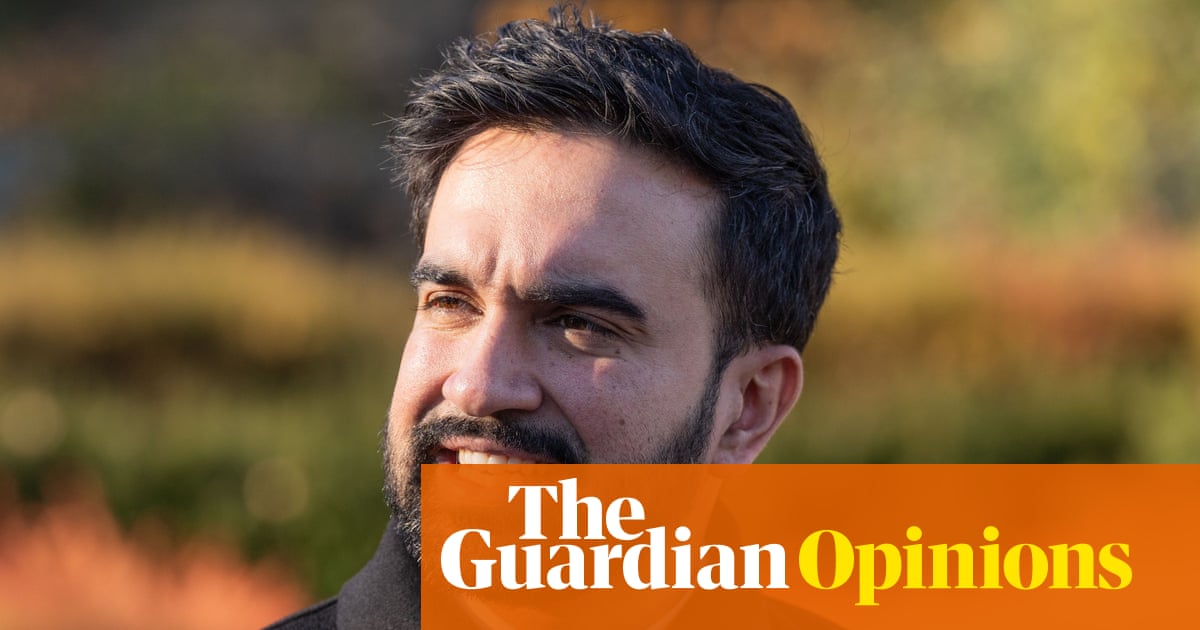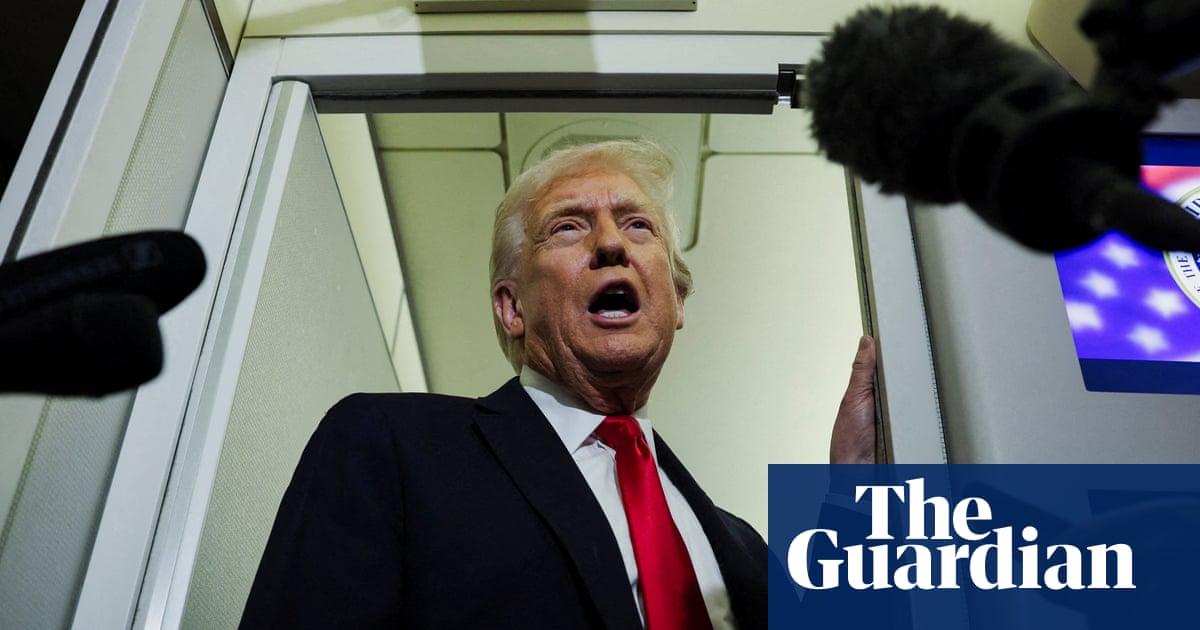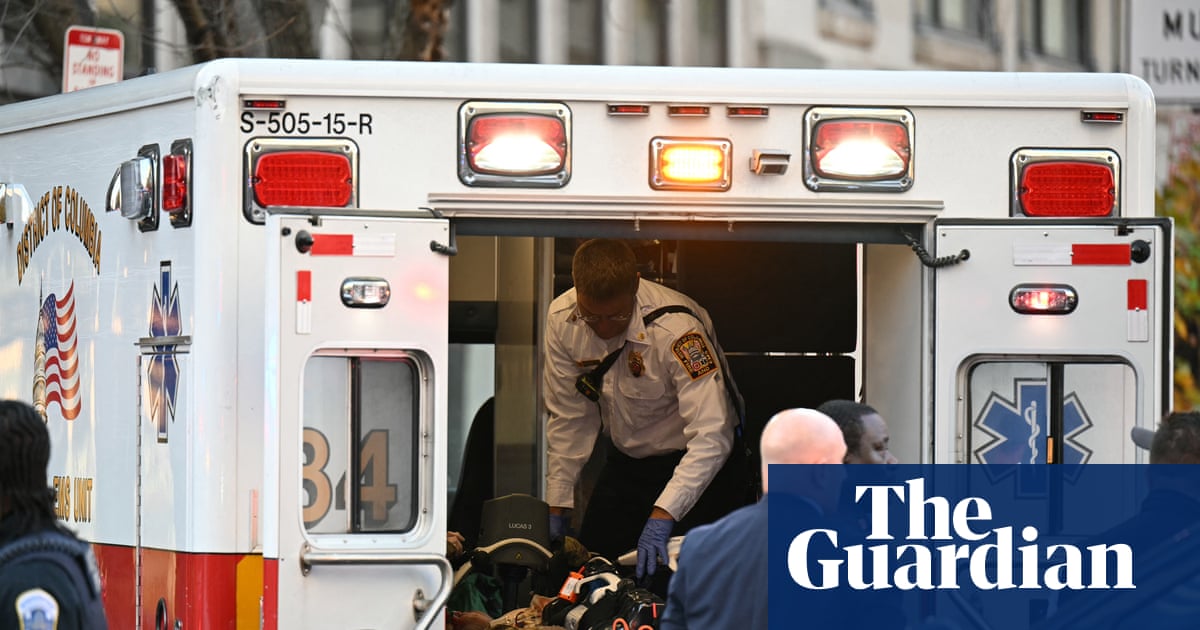“Washington DC is considered a safe zone,” Donald Trump declared on Tuesday, veering off topic at the national Thanksgiving turkey pardoning ceremony at the White House. “This was one of the most unsafe places anywhere in the United States. It is now considered a totally safe city.”
A day later, two national guardsmen from West Virginia were shot in a busy area a few blocks from the White House in downtown Washington. The ambush took place outside the Farragut West Metro railway station within sight of the Guardian’s office (I had been in the station three hours earlier and witnessed national guard troops milling around).
In a speech from his Mar-a-Lago estate in Florida on Wednesday evening, Trump said the suspect entered the US from Afghanistan in 2021. For the president it was a political opportunity and he was determined to exploit it. Immigration? Check. Law and order? Check. All Joe Biden’s fault? Check.
Trump accused his predecessor of allowing millions of violent criminals into the US and launched a xenophobic attack on Somalis in Minnesota: “Hundreds of thousands of Somalians are ripping off our country, and ripping apart that once great state.” Notably, the previous evening, his aide Stephen Miller had decried “the Somalification of America”, telling Fox News: “Look how powerful the Democrat Party became in Minnesota once they flooded it with 100,000 Somalians!”
Then Trump announced a review of the status Afghan nationals in the US. “We must now reexamine every single alien who has entered our country from Afghanistan under Biden, and we must take all necessary measures to ensure the removal of any alien from any country who does not belong here or add benefit to our country.”
Raising the spectre of a newly aggressive crackdown by ICE (Immigration and Customs Enforcement), the remarks came as little surprise from a president who has made illegal immigration central to his political identity. The White House regularly sends out lists and images of undocumented immigrants convicted of crimes and could not resist playing up the suspect’s nationality.
Such red meat spectacles are, the administration hopes, a powerful distraction for a Trump base recently fracturing over rising prices and the non-release of the Jeffrey Epstein files. It also goes hand in hand with the president’s authoritarian impulse to militarise US cities.
In August he declared a “crime emergency” in Washington, put the city’s police force under federal control and ordered the deployment of 2,375 national guard troops.
Critics perceived an authoritarian power-grab, mirrored in other cities, that could trigger a backlash. A few weeks ago at Farragut North Metro station, a young man spoke loudly and clearly to national guard members: “You should be ashamed of yourself. You are doing the bidding of a dictator.” A passenger on the platform burst into applause. One guard member replied: “We’re just following orders.”
But Wednesday’s shooting was the first major act of violence involving the national guard, which – posted at Metro stations, around federal lands and transport hubs – has proved less incendiary than ICE. Last month’s No Kings protests in Washington were overwhelmingly peaceful with no arrests. Mayor Muriel Bowser appeared to accept the deployment, although she announced this week that she will not seek re-election as mayor.
The most notorious incident of recent months did not involve the national guard at all: Sean Dunn, who used to work for the justice department, was charged in connection with tossing a sandwich at a Customs and Border Protection officer in August. He was subsequently found not guilty of assault.
Meanwhile the national guard have even been give tasks such as cleaning parks, clearing trash, laying mulch and maintaining landscaping. On Monday, the defense department issued a press release declaring the “beautification efforts” complete, along with photos showing guard members carrying black garbage bags at various locations.
Media reports suggest they are deeply unhappy with the assignment and say this is not what they signed up for. In an encrypted group chat, an anonymous member of the Ohio guard told NPR: “I have been on two humanitarian-esque missions with the guard, which were awesome, doing the things you see on the commercial, helping these communities.
“And then you want me to go pick up trash and dissuade homeless people in DC at gunpoint. Like, no dude. It’s so disheartening every time I see another city – and I just wonder, ‘who’s going to stand up to this?’”
But Trump, who had already decided the national guard deployment would continue to at least the end of February, is now likely to crack down even harder. He announced the deployment of an additional 500 national guard troops – though it is unclear what that will achieve.
The risk of escalation is clear in a city that witnessed troops firing on peaceful protesters during the Black Lives Matter summer of 2020, the riot at the US Capitol on 6 January 2021 and the killing of two Israeli embassy staff outside the Capital Jewish Museum in May. And it comes amid a culture of political violence that led to the assassination of rightwing activist Charlie Kirk in Orem, Utah.
It was a reminder of another, often neglected scourge. John Feinblatt, president of Everytown for Gun Safety, said: “The fact that this can happen to members of the military just steps from the White House serves as a painful reminder that in a country awash with guns, no neighborhood is beyond the reach of this crisis.”
It is at such moments that the nation looks to the president for balm and unity. But in his televised remarks, the divider-in-chief made clear he is intent on pouring fuel on the flames.

 German (DE)
German (DE)  English (US)
English (US)  Spanish (ES)
Spanish (ES)  French (FR)
French (FR)  Hindi (IN)
Hindi (IN)  Italian (IT)
Italian (IT)  Russian (RU)
Russian (RU)  2 hours ago
2 hours ago
























Comments